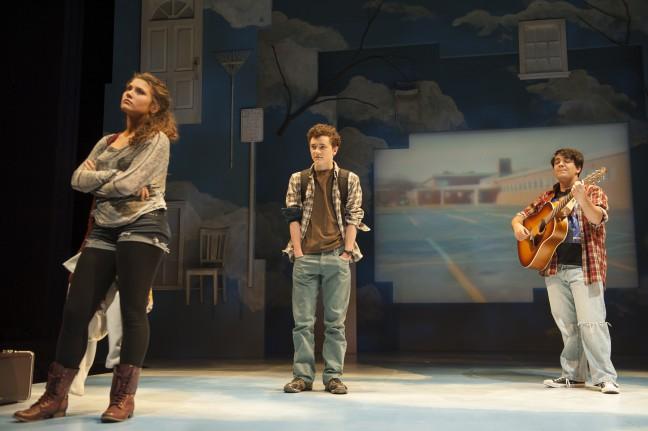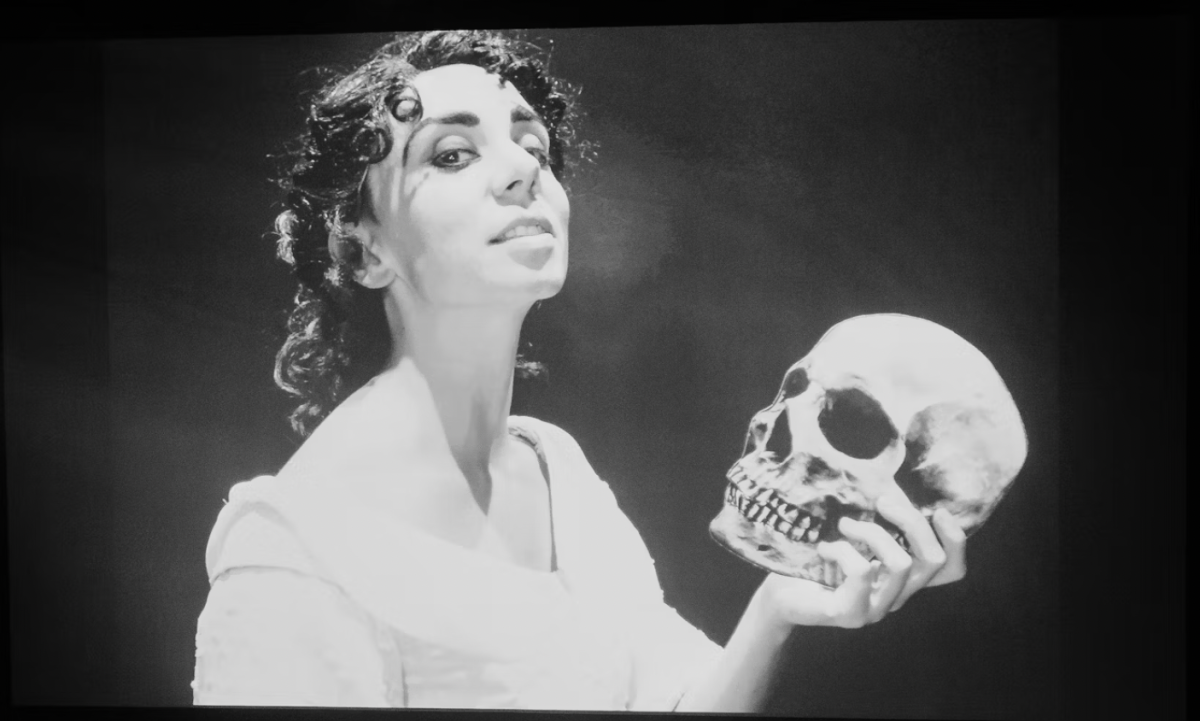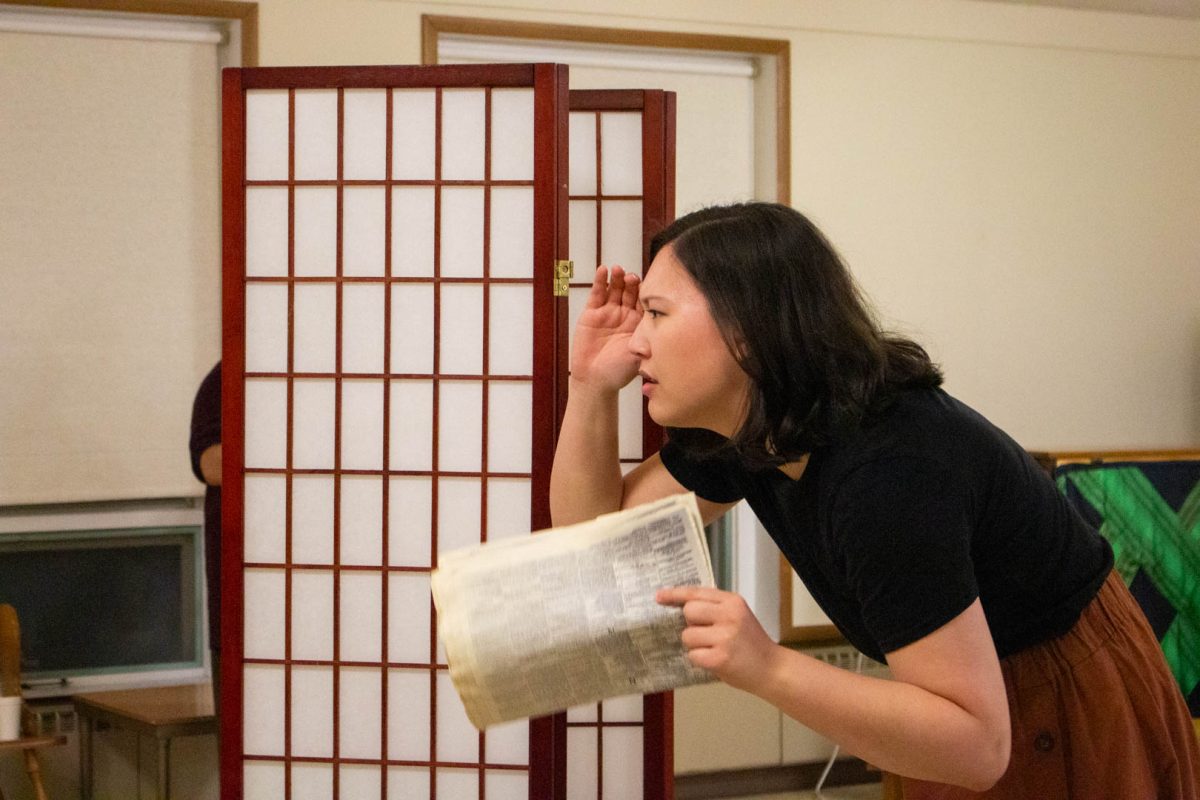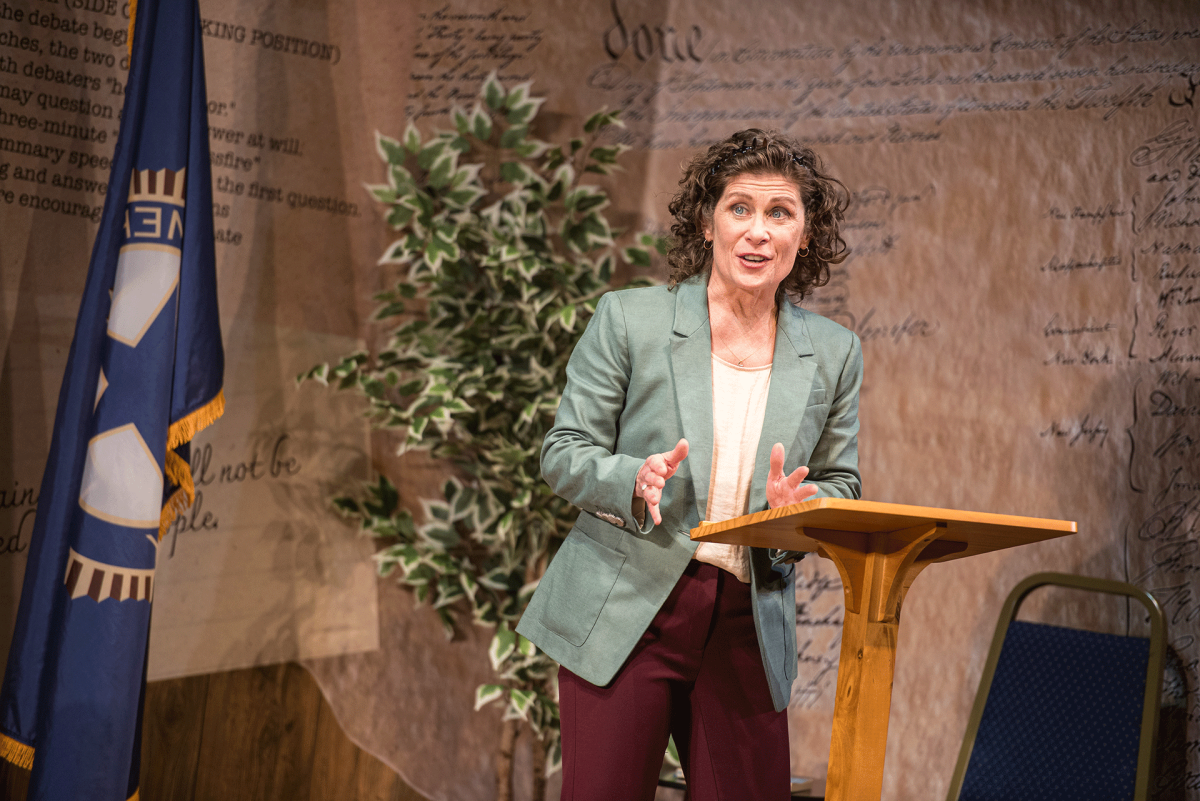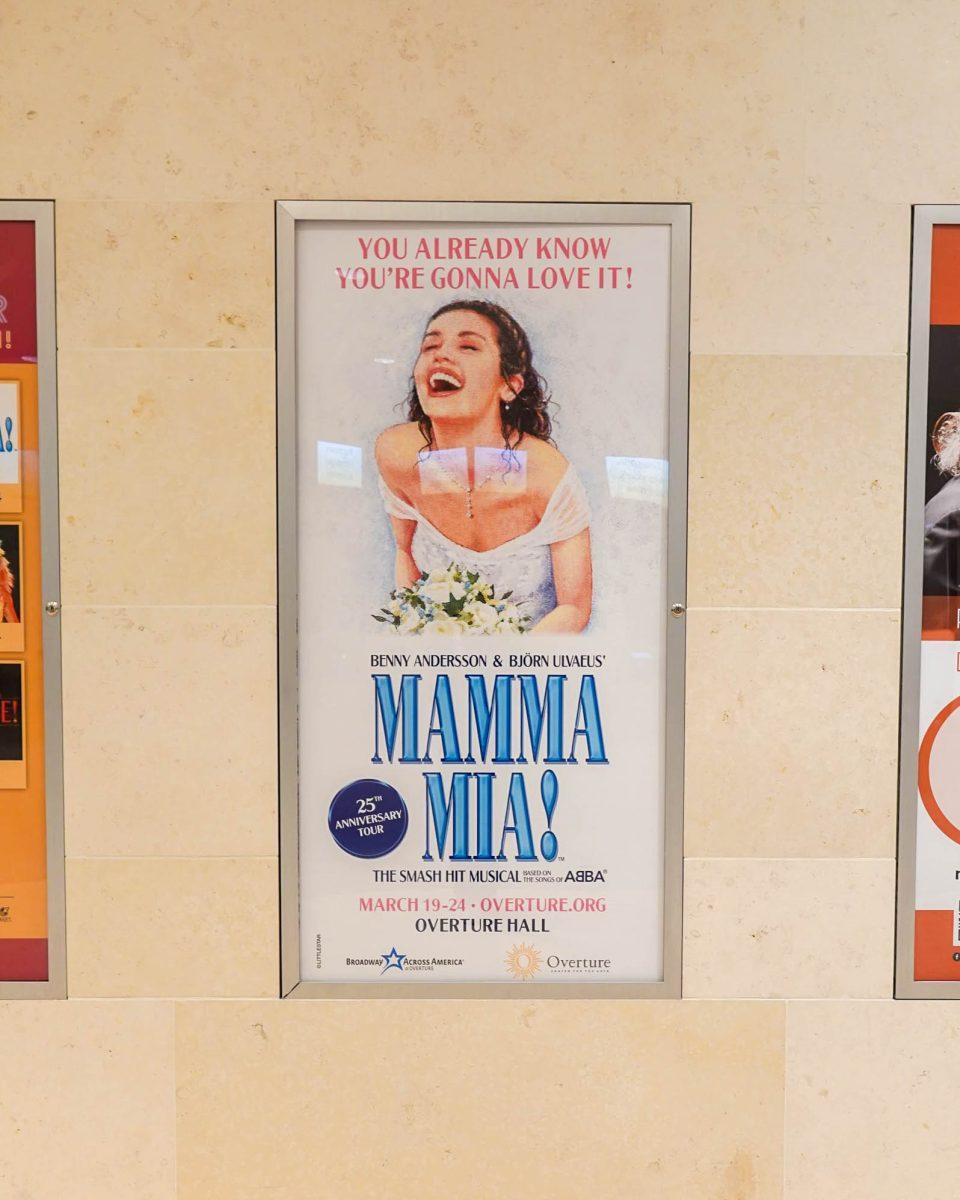Director Jennifer Uphoff Gray and the cast and crew of Forward Theater Company succeeded in covering a wide range of timely issues in their rendition of “From Up Here” playing at the Overture Theater. From the use and effects of antidepressants to school violence to social ostracization to family conflict, “From Up Here” was rich with mention of such important issues.
Within the 100-minute, no-intermission performance, each scene was either a careful examination of the teenage psyche, the effects of being treated certain ways or the strains experienced by the modern family.
Kenny, a teenager dealing with his trifling father, high-strung mother and sardonic sister, is at the center of the story. The initial scene at home on a weekday morning serves to give a quick profile of Kenny. He is perennially unhappy, distant from his family and seems averse to the excitement surrounding his own birthday. The biggest revelation in this scene, however, is that his stepfather needs to search his backpack daily before school.
This mysterious aura surrounding Kenny is augmented when his sister Lauren makes a reference to Kenny being called a psycho by a classmate and also makes an illusion to “the list” that her brother had made.
While the event that caused all this is never fully revealed, it is clear to the audience Kenny had some sort of trouble months prior, likely involving threatening or planning a violent act at school.
After this, the story centers around how each member tries to help or heal Kenny. This involves many characters, but two contrasts emerge.
The first of those is the difference between two foils, his sister Lauren and his assigned peer mentor Kate. While Kate initially appears as a saving grace and huge help for Kenny, after a while it is revealed that she has ulterior motives. After this, Lauren emerges as the main peer adviser to Kenny, showing that familial ties are more dependable and lasting.
The biggest contrast, however, is shown in another set of foils, Kenny’s mother Grace and his aunt Caroline. While Grace is usually dressed in business casual attire, stressing about something or is “visually merchandising” something that shouldn’t be, Caroline is the exact opposite. Caroline is a free-spirited traveler-type who — more than once — suggests “smoking a bowl” as the solution to a tense situation.
The most interesting part of this dichotomy is how differently Kenny reacts to each approach to help him. While his mother suggests “getting involved” and pushes Kenny a bit too much, his aunt connects with him on a more personal level, and her free-spiritedness ultimately draws him in. Trust is a central issue of the story and Caroline shows how to best reach a struggling teenager.
Kenny’s development is one of the best parts of the play. At the beginning, he is cold and withdrawn from nearly all social and familial ties. A combination of internal and external forces lead to a heart-warming scene near the end in which he emotionally connects with his mother and things seem to be looking up.
Praise is also due for whoever chose the music that plays as the scenes transition. Despite being made up mostly of vapid Top 40 songs, the instances where they were used both gave the songs a deeper meaning and served to sum up the prior scene or set the stage for the next one.
The show is bookended by scenes depicting postcards sent from Aunt Caroline to Kenny. Both at the beginning and end, these scenes served to show just how instrumental Aunt Caroline was for Kenny’s improvement.
Overall, “From Up Here” takes what could be a tired or clichéd setting and situation and instead turns it into an effective vehicle for analysis of important issues such as bullying, school violence and how to treat others.


